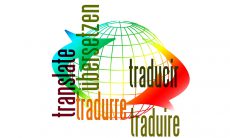I got an e-mail recently from someone at a large, multinational company who is in a quandary. They’ve had some success with their U.S. Web marketing, but now each of the country teams in the company are demanding help. What are the best ways to manage a multinational Web site presence? My correspondent was concerned about how hard it is to do and what unwanted impacts might await.
She wrote, in part, “We know that to rank highly on Google.au our site really needs [an AU] domain name. However, the concern is how to manage this for all the other offices then? (If we do it for one, they all will want it.)” She’s right, and it can be hard to manage. Search engines include sites in their country search engines that have country domains (as she notes) or are hosted within that country. Many companies find both of these solutions difficult to manage.
Many companies prefer to host all country sites under “.com” and use the country identifier in a directory within the URL (www.ibm.com/au), rather than setting up dozens of country domains. Similarly, it’s usually more expensive to host country sites within each country—you save money with regional hosting centers for multiple countries. Search engines are getting smarter, however. In some cases, pages that are heavily linked from other country pages seem to be included in country indexes even without the right domain name or server address.
Our writer went on, “Also, from what I understand, search engines tend to filter out duplicate content pages. So having different domain names with the same content doesn’t seem like a good solution to me?” Typically, the content wouldn’t be duplicated precisely, because language, dialect, messaging, and currency differences make each country’s content unique, even if the products are the same.
She also asked, “How about IBM? How do they handle this?” Glad you asked. I did a presentation at Search Engine Strategies in Toronto back in 2005 on just that question. Check out “Multi-Country Search Campaigns.”







